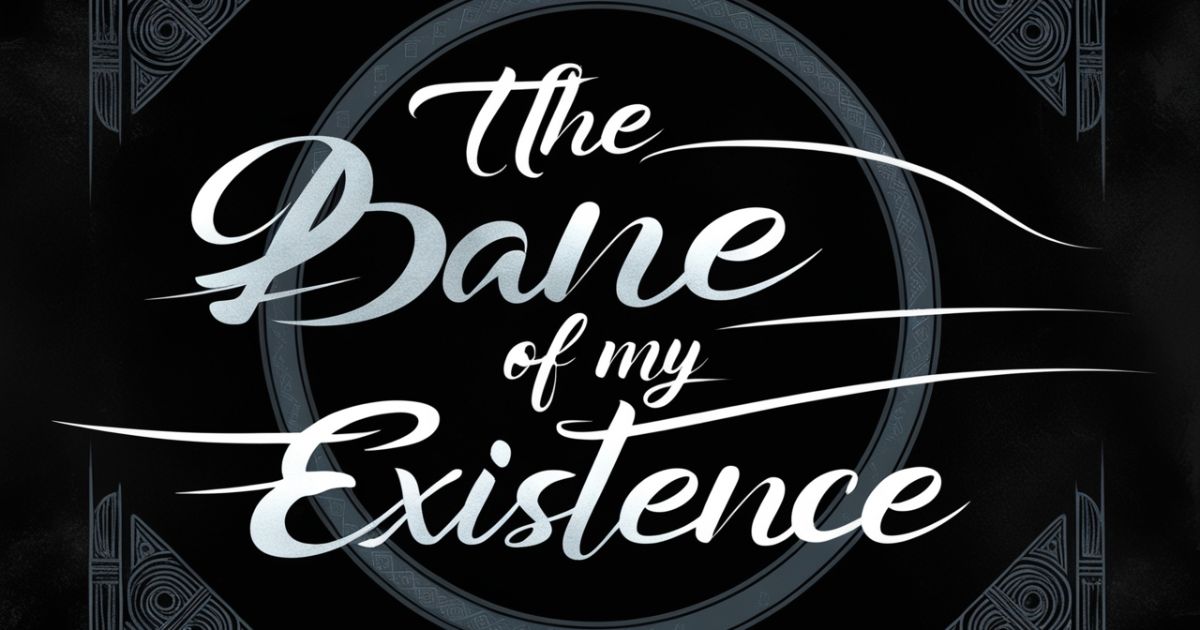The English language contains numerous expressions that may appear confusing to those unfamiliar with their origins and applications. One such phrase is “this — is the bane of my existence,” where the blank can be filled with a person, weather condition, or any object that causes frustration. For individuals learning English or encountering this expression for the first time, its dramatic nature might seem excessive or unclear.
What precisely does this phrase convey? Why do people choose to use it? Where did it originate? If these questions have crossed your mind, you have found the appropriate resource. This comprehensive guide will examine the meaning, historical background, and primary applications of this compelling expression.
The Meaning of ‘The Bane of My Existence’
When someone employs the phrase “the bane of my existence” in English conversation, they are characterizing something as particularly troublesome or problematic in their life. Consider this illustrative scenario: you are walking down a street with a companion when rain begins to fall.
The weather has been consistently wet recently, and within seconds both of you become thoroughly soaked. Your friend gazes upward, exhales with frustration, and declares “This rain is the bane of my existence.”
What exactly does your friend intend to communicate through this statement, and what motivates this particular choice of words? In essence, they are expressing that the rain represents a significant source of irritation or difficulty.
This expression can be interpreted in two distinct ways: literally and figuratively. Most contemporary usage falls into the figurative category, though literal applications do exist in specific contexts.
Definition of ‘The Bane of My Existence’
Before examining examples that demonstrate the distinction between literal and figurative usage of this phrase, it is essential to explore the etymology of its key components. The most archaic element in this expression is the word “bane.” Understanding its historical meaning provides crucial context for the phrase’s modern application.
The term “bane” derives from the Old English word “bana,” which translates approximately to “the thing that causes death or poison.” In historical contexts, if someone succumbed to a plague, their bane would be identified as that specific disease. Similarly, if an individual died from poisoning, the toxic substance would be considered their bane.
Over time, the word expanded beyond its original scope to encompass various death-related scenarios. For instance, a sword might be regarded as someone’s bane. Heroes in classical literature frequently named their weapons after the entities they intended to defeat. “Dragon’s Bane” represents a common sword designation in mythological narratives.
Therefore, the “bane” of someone’s existence traditionally described something that prevented them from living or posed a mortal threat. However, this represents the literal interpretation. When people use “the bane of my existence” in contemporary English, it typically functions as hyperbole rather than a literal statement.
Examples of “The Bane of My Existence”
Returning to our previous illustration of “This rain is the bane of my existence,” what does your friend actually mean through this dramatic declaration?
Simply stated, they are expressing annoyance with the weather in an intentionally exaggerated manner. Obviously, the rain does not literally threaten their existence or significantly impact their ability to live. Rather, it serves as an entertaining method of communicating displeasure or frustration.
While literal usage remains possible, it occurs rarely outside fictional narratives. For example, if a character faces constant pursuit by an antagonist whose actions repeatedly devastate their life, describing that person as “the bane of their existence” might be reasonably accurate. However, such circumstances requiring literal interpretation are exceptionally specific and uncommon.
Additional examples of the phrase in practical application include:
“Social media notifications are the bane of my existence. They constantly interrupt my concentration.”
“Traffic congestion has become the bane of my existence during morning commutes.”
“Automated customer service systems are the bane of my existence when I need immediate assistance.”
Final Thoughts
This comprehensive examination should have effectively clarified the reasoning behind people’s use of this distinctive expression. “The bane of my existence” represents an engaging linguistic tool for expressing strong dislike or frustration toward something.
However, caution should be exercised when applying it to describe people, as it carries significant dramatic weight and works best when referring to weather conditions, situations, or inanimate objects that cause minor inconveniences.
The phrase demonstrates the rich evolution of English language, where ancient terms acquire new meanings while retaining their dramatic impact. Understanding such expressions enhances both comprehension and communication skills in professional and personal contexts.
Frequently Asked Questions
What Is The Opposite To ‘The Bane of My Existence?’
While no direct antonym exists for this expression, effective contrasts include phrases such as “my greatest source of joy” or “the highlight of my day.” These positive expressions, though potentially hyperbolic themselves, provide stark contrast to the negative sentiment conveyed by “the bane of my existence.” The key lies in selecting phrases that express strong positive feelings to balance the dramatic negative tone of the original expression.

Hello, I’m Daisy Sadie, a writer at Azaadpuns. I explore the dynamic world of puns and wordplay, delivering captivating linguistic twists that will make you laugh and groan. Join me on Azaadpuns.com for the latest in clever wordplay that makes language fun again.

